Many small traders and businesses in Hanoi and Ho Chi Minh City have recently posted notices on social networks, instructing customers to avoid using words related to sales transactions in their transfer content to avoid being inspected or facing tax risks.
Business households suggest customers strange ways to transfer money or receive cash when making transactions
According to the reporter, a social media account specializing in receiving orders for cosmetics and clothes from abroad recently posted a message reminding customers to be careful when transferring payments.
Accordingly, the seller asked customers to only write their Facebook account name in the transfer content, avoiding phrases such as “Facebook”, “money for goods”, “goods” or “payment”. The reason given by the owner of this online store is that the current bank account information will be transferred to the tax authority.
KO account, a cosmetics trader in Ho Chi Minh City, said that from June 1, delivery units will start collecting 8% VAT on the value of goods.
Accordingly, customers who transfer the full amount in advance will keep the shipping fee and will not be charged additional tax. The seller only requires the customer to clearly state the sender's name in the transfer content, without mentioning the goods or payment. Conversely, if the customer chooses the payment method upon receipt of goods, the order value will be added with 8% VAT.
This merchant also gave an illustrative example: with an order worth 200,000 VND, if the customer receives the goods and then pays, the amount to be paid will be 216,000 VND, excluding shipping fees.
Meanwhile, if the customer transfers the full amount before delivery, no additional tax will be charged. The seller also instructs that the transfer content should include cheerful phrases that are not related to commercial transactions, such as “Happy wedding”, “Happy Birthday”… as long as it avoids using words like “buy”, “sell”, “goods” or “deposit”…
Social media post (Screenshot).
Although bank transfer is convenient, many restaurant owners are still cautious when applying this form of payment.
Ms. L. - owner of a restaurant on Ta Quang Buu Street (District 8), said she did not deny the convenience of cashless payments, but said that it comes with many unpredictable inconveniences.
According to her, many customers want to transfer money but do not have an internet connection, so they have to ask for the shop's wifi password. When there are too many users at the same time, the network becomes unstable, causing transaction interruptions. There are cases where customers report that they have transferred money but the shop owner has not received the notification, so it takes time to check again.
Another common situation is when a customer transfers the wrong amount. “Someone pays 50,000 VND but transfers 1 million VND, then asks for 950,000 VND in cash. While the restaurant does not always have small change available,” said Ms. L.
Many shop owners are worried about the scams that involve fake notifications of successful money transfers. Ms. L. said she once encountered a case where a customer showed a screenshot confirming the transaction, but when she checked again, the money had not yet been deposited into her account. While she was still confused about checking, the customer quickly left.
Many information stores only accept cash before the new tax regulations (Photo: Tien Tuan).
On the customer side, many people also have difficulty because they do not often carry cash with them. Ms. Minh Thu ( Bac Ninh ) was instructed by the restaurant owner to pay in cash for 2 bowls of pho worth 90,000 VND. The reason is that the restaurant owner has not accepted bank transfers since the beginning of June.
"At that time, I only had a phone, I only had 50,000 VND on me, I was short 40,000 VND, I had no choice but to find an ATM to withdraw money, but I didn't know where it was," she said. In the end, she still transferred 40,000 VND but wrote the content as "Happy Birthday".
The pho restaurant owner explained that the reason for the temporary suspension of transfers was "concern about the new tax policy". When Ms. Minh Thu suggested adjusting the selling price to compensate for this, they shook their heads: "If the price increases, it will be difficult to retain customers". "I understand that sellers are worried about being taxed, but doing so feels like buyers are also "circumventing the law". And it's really inconvenient", Ms. Thu said.
Expert: Hiding revenue is difficult
The above reality is the common reaction of many business people across the country to the change in the lump-sum tax policy from June 1. Accordingly, business households with revenue of over 1 billion VND per year in a number of industries (food and beverage, hotels, retail, passenger transport, beauty, entertainment...) must use electronic invoices via cash registers connected to the tax authority.
The revenue of business households and individuals will be re-determined and may be adjusted, instead of the previously applied lump-sum tax rate. It is expected that about 37,000 business households and individuals currently paying tax under the lump-sum form will have to change their form.
Mr. Le Van Tuan, Director of Keytas Tax Accounting Company Limited, said that many taxpayers currently believe that by limiting transfer transactions and only accepting cash, they can avoid revenue detection by authorities. However, according to him, this is a simple and subjective thought, because with existing professional measures, tax authorities are fully capable of determining the actual revenue of the seller.
Specifically, cash flow into accounts, transaction quantity and value, and purchase turnover from suppliers with invoices are all the basis for tax authorities to compare and check. Stores that only hang signs saying “cash only” can also easily be targeted by authorities.
Mr. Tuan emphasized that hiding revenue is very difficult, because recently the tax industry has discovered many cases of deliberately concealing transactions to evade taxes and many cases have been prosecuted.
According to Mr. Tuan, the use of multiple bank accounts to receive sales proceeds is no longer a “loophole”. With the application of electronic identification and increasingly improved tax data, authorities can trace the entire cash flow. From July 1, the regulation on using personal identification codes to replace tax codes will apply to individuals, business households and enterprises. Taxpayer information has been identified on VNeID, and linked to bank accounts and the eTax Mobile application.
“For individuals, this data may be private information, but for authorities, they have full tools to review and assess tax obligations accurately,” Mr. Tuan affirmed.
In case the taxpayer intentionally conceals revenue, the act of not issuing invoices when selling goods can be administratively fined 6 million VND per violation. After being discovered, the hidden revenue will be subject to tax collection, plus late payment interest of 0.03% per day, and a penalty of 20% of the incorrectly declared tax amount may be applied. Notably, if the amount of tax evaded exceeds 100 million VND or is below this threshold but the violation is repeated many times, the violator may be criminally prosecuted.
Experts say tax evasion is very difficult (Photo: Manh Quan).
Tax authorities speak out about business households "avoiding" taxes
Faced with the situation where some businesses only accept cash payments and refuse to transfer money to "avoid" taxes, the Tax Department of Region I said that cases of intentionally concealing revenue and dishonest and incomplete tax declarations will be strictly handled according to regulations.
Tax authorities will collect, assess taxes and impose penalties for false declarations, tax evasion, and even criminal prosecution.
According to regulations, revenue subject to value added tax (VAT) for business households and business individuals is revenue including tax (in cases subject to tax) of all sales and service provision that business households and business individuals receive, regardless of whether the money has been collected or not.
"The act of hanging a sign 'cash only' or writing ambiguous transfer content, for example 'loan payment', 'coffee fee', 'shipping fee'... making it difficult for authorities to determine revenue does not reduce tax obligations, but on the contrary can become a sign of suspicion for revenue concealment," affirmed the Tax Department of Region I.
Tax authorities recommend that business households and individuals learn about legal regulations, do not listen to and follow illegal acts such as concealing revenue, lack of transparency in economic transactions; and declare correctly and fully revenue when selling goods and services.
Source: https://dantri.com.vn/kinh-doanh/khach-di-an-pho-chuyen-tien-ghi-chuc-sinh-nhat-ho-kinh-doanh-ne-thue-20250604225024489.htm



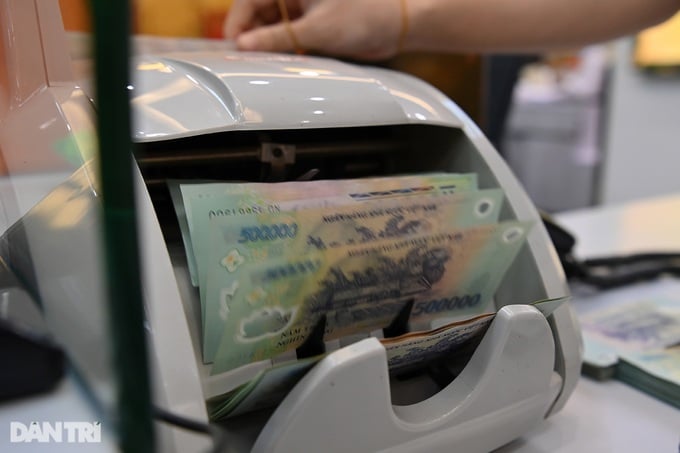
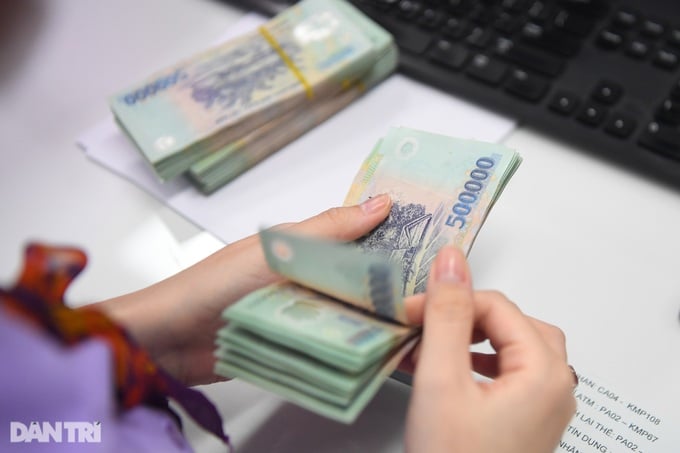



























![[Photo] General Secretary To Lam receives Korean Ambassador to Vietnam](https://vphoto.vietnam.vn/thumb/1200x675/vietnam/resource/IMAGE/2025/6/6/a0765b7543784cbcbfe4755b67d43ab4)
![[Photo] President Luong Cuong works with Hung Yen and Thai Binh Provincial Party Committees on implementing Resolution of the 11th Central Conference, 13th tenure](https://vphoto.vietnam.vn/thumb/1200x675/vietnam/resource/IMAGE/2025/6/6/127b735d2761484d81dcee0d7725a25b)





























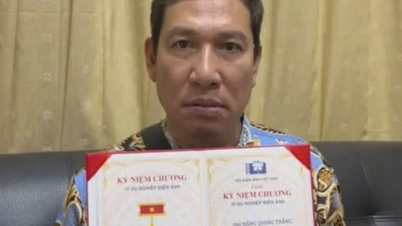





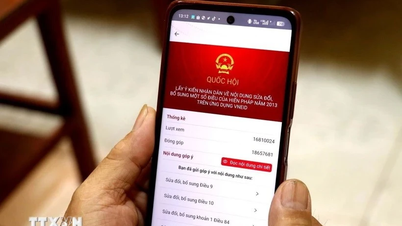

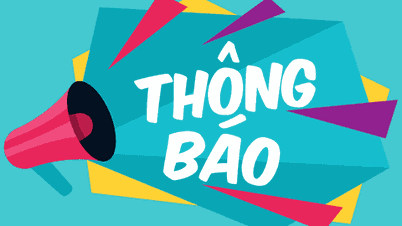
















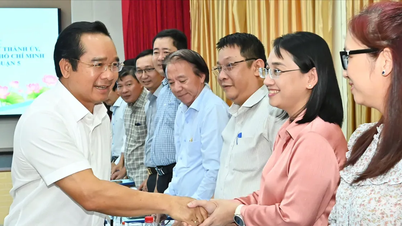






![[OCOP REVIEW] Tu Duyen Syrup - The essence of herbs from the mountains and forests of Nhu Thanh](https://vphoto.vietnam.vn/thumb/402x226/vietnam/resource/IMAGE/2025/6/5/58ca32fce4ec44039e444fbfae7e75ec)











Comment (0)